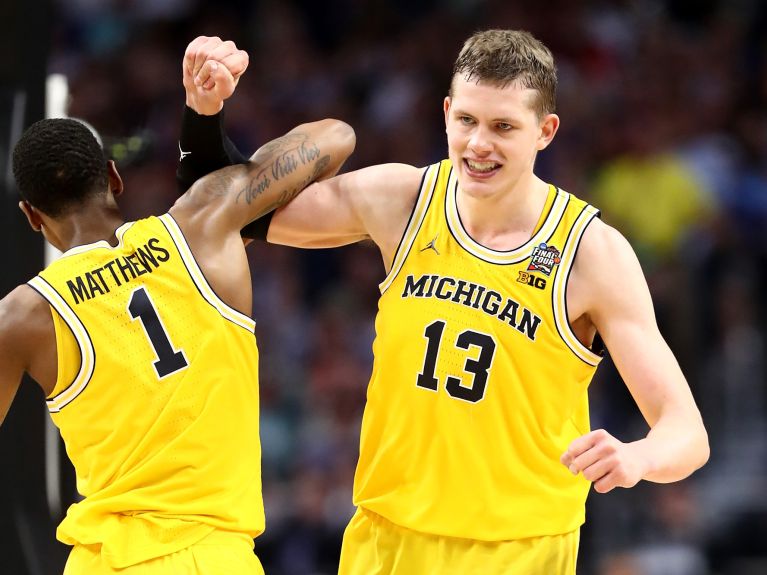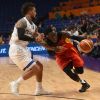Away games
Like many German athletes, Moritz Wagner had a rough go of it when he arrived in the US. Now he’s a Los Angeles Laker.

No. On a sunny morning in this beach town south of L.A., Moritz Wagner does not look much like an NBA star. He’s not dressed like many of his fellow pro-basketballers – flashy designer suits, heavy gold chains, extravagant headgear. Perched on a parapet in front of a Manhattan Beach Café, his baggy green clothes paint the picture of a surfer making himself comfortable after a few hours on the water. The sun is out, as it is every day. The Pacific Ocean is less than three minutes away. “The beach and the sea have a therapeutic effect on me,” says Wagner, and so it seems. Whoever can have negative thoughts in a place like this must have something out of whack.
A 21-year-old kid from Berlin
Wagner plays center for the Los Angeles Lakers. He’s a teammate of LeBron James. The president of the club? Magic Johnson. External advisor? Kobe Bryant. Former Lakers who also played center? Wilt Chamberlain, Kareem Abdul-Jabbar, Shaquille O’Neal. It would be hard to imagine more prominence for the German rookie than playing for one of the most famous sports clubs in the world, and lest we forget: the world’s best basketball league has about 400 players, of which only 150 are good enough to start, to call themselves regulars. “It’s a game, sure, but it’s also a really tough business,” says Wagner. “Everyone in the game knows that every day is about keeping your job.”
And what does this do to a 21-year-old kid from Berlin when he’s suddenly playing for the Lakers and living in a city of four million people like L.A.? When, far from home, he’s planning for his future in sports while also pursuing a private life? When, unlike in German sports, regulations dictate that people know you’re paid $1,764,240, and next season you’ll make exactly $2,066,040?
The transition to the New World can be difficult
Germany and the United States – that still sounds like a couple of siblings, and at least in terms of pop culture, the US is still like an older brother to Germany. However, for a top athlete to make the transition to the New World can still be immensely difficult. Dirk Nowitzki wanted to flee back to Germany after his first season at Dallas; Dennis Schroeder began his NBA career by being sent to the junior league after a few sub-par games; the German soccer stars Arne Friedrich and Torsten Frings opted to return home, somewhat disillusioned, after short guest stints in Major League Soccer.
Anyone wanting to know what it’s like to cross the pond to pursue a career in sports could do no better than to have a talk with Moritz Wagner. In 2015, he went from playing for Alba Berlin to attending the University of Michigan, an elite university with a legendary basketball program that boasts graduates like Rudy Tomjanovich, Chris Webber and Cazzie Russel.
An extraordinary experience
Granted, it may seem to German observers that a semester abroad at an American university is nothing extraordinary. However, what German students experience during a fixed period of time in a foreign country could hardly be more different from what an athlete undergoes. How many ordinary exchange students play before a crowd of almost 14,000 spectators, as do the Michigan Wolverines in the Crisler Center in Ann Arbor? Who flies to Dallas for away games and has to work on a term paper during the flight? Who gets derided on campus by fellow classmates after a loss, yet is celebrated as the honored guest at every party after a win?
Wagner came to this college town in the Midwest and at first, so goes the tradition, had to share a room in a student dormitory with one of his teammates. The problem was: he turned off the heat at night because he preferred the room cold – so cold, in fact, that Wagner couldn’t sleep and was sick with a head cold on a regular basis. And the dining hall food was a world of difference from what his mother Beate served in Berlin. And to top it all off, the workout plan and tactical orientation of the team were nothing like with Alba Berlin.
Read the whole text on The German Times website.
Jürgen Schmieder is a US based sports reporter for the Süddeutsche Zeitung.


